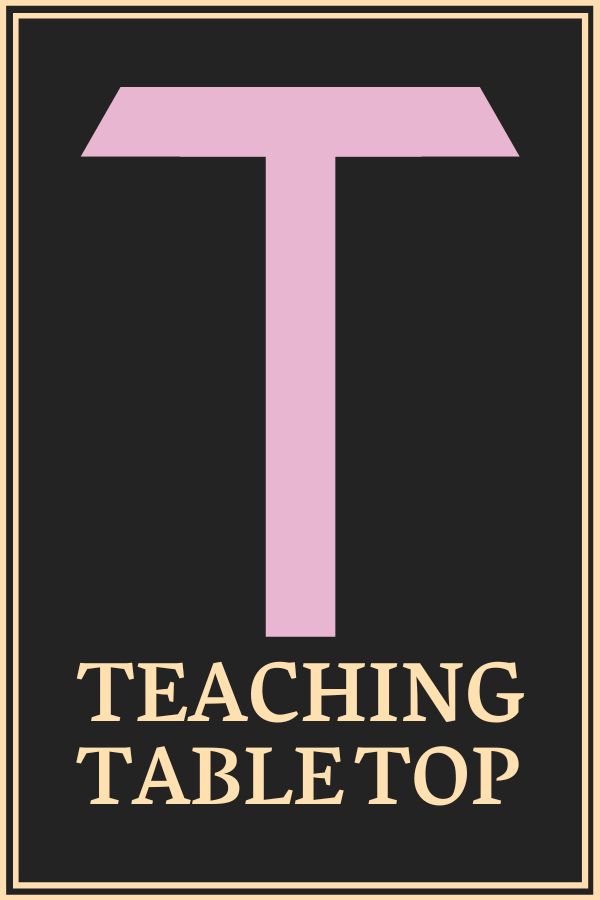What is Teaching Tabletop?

Teaching Tabletop is about crafting great game experiences by learning to teach tabletop games effectively.
Learning to teach tabletop games well can mean the difference between sharing your passion with your friends and scaring them away. Teaching Tabletop will help you acquire the skills and know-how to not only teach people how to play games more effectively, but also to do so in a way that makes all of your gaming experiences more enjoyable.
We want you be a better teacher of tabletop games, because you deserve game nights that are memorable. We can help!
Is Teaching Games Well Important?
You’ve just arrived at your friend’s house, with a few others knocking on the door at about the same time. Everyone is anticipating a great night of gaming, and someone pulls out a shiny new game that looks exciting. They’ve talked this game up all week, and everyone at the table can’t wait to play! As they peel away the shrink-wrap, you begin to realize what what will follow even before the words find your ears:
“I’ve been really busy this week, so I haven’t had a chance to read the rules. But I watched a quick video online and it doesn’t look too hard. Let me just read these out loud. That way you all can just follow along…”
Ugh.
You know what comes next. In fact, more than likely you’ve been there in some capacity. Maybe you assumed the role of the busy teacher, or maybe you were unfortunate enough to be the learner. Either way, this probably wasn’t the best of experiences for you.
Let’s change that!
Who are Carl and Lisa
I (Carl) am a science librarian, college professor (and teacher), and I love playing tabletop games. Simply being a college professor does not make someone a good teacher, but I have worked hard to become just that. In my classroom I try to use creative methods, and I sometimes incorporate tabletop games to teach interesting concepts. I do this because it makes sense to me, and the scholarly literature bears out that this is an effective pedagogical approach when used appropriately and deliberately.
I learned quite quickly that I need to be an effective teacher of tabletop games if I want my classroom experience to be a good one. I’ve made mistakes along the way, and while I try to avoid it, I occasionally still find that I try to teach a game to someone when I am ill-equipped to do so.
But I’ve learned a lot. And as I’ve gotten better at it I’ve noticed that my role as a teacher of games profoundly and directly impacts whether or not the person I’m teaching likes the game–or even the hobby.
Lisa is amazing. She works in the insurance industry and has a background that includes teaching, editing law books and has even done editing work for tabletop game instructions! Lisa showed me the huge difference between instructions written for gamers, and instructions written for people to learn how to play a game. Her keen eye for detail and has been super helpful to me and my growth as a teacher.
Carl’s Dad Learns Chess
At around the age of 12 I learned to play chess. My mother taught me the fundamentals, and shared a book or two with me about strategies. The game fascinated me. I could also never understand why my father didn’t want to play. My mom explained that when he was younger, an older neighborhood boy taught him how to play. Except that boy didn’t really teach him to play. The rules seemed to change with each subsequent game; he was being cheated. In short, his bad early experience with games stemmed from how he was being “taught.”
Whatever the reason you seek tips to step up your tabletop teaching game (pun intended), bad experiences are something we all want to avoid. Teaching Tabletop is not a “one size fits all” approach to teaching tabletop games, but rather a pallet of techniques you can try out and then use in whatever combination works best for you.
Let’s make your game nights amazing!
-Carl & Lisa
